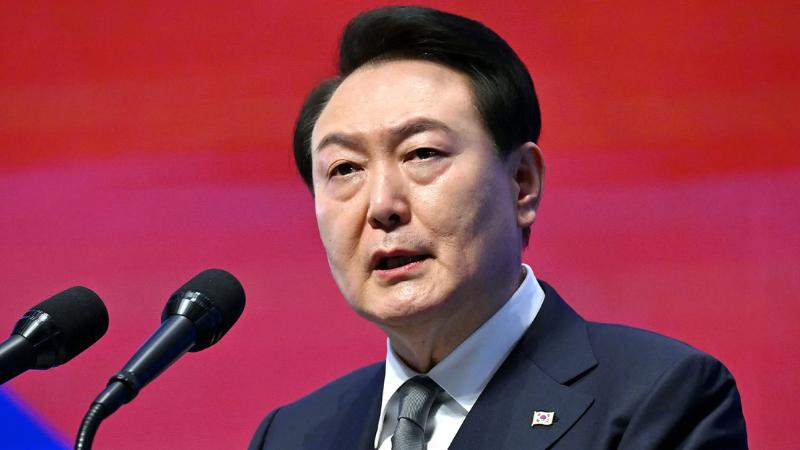
- greensea
- 15 Jan 2025 08:16 AM
- Global News
South Korea's President Yoon Suk Yeol Arrested: A Historic and Controversial Moment
In a groundbreaking development, South Korea’s President Yoon Suk Yeol has become the country’s first sitting president to be arrested. This marks the conclusion of a tense weeks-long standoff between law enforcement officers and the president’s security team.
Impeachment and Investigation
- Impeachment: Yoon was impeached by parliament after his failed attempt to impose martial law.
- Investigation: He is currently under investigation for insurrection. However, his impeachment's validity is still pending a decision from the constitutional court, meaning he remains technically the president.
The Arrest Operation
- Previous Attempts Blocked: On January 3, earlier efforts to arrest Yoon were hindered by barricades, buses, and barbed wire set up by his Presidential Security Service (PSS).
- Dawn Raid: On this occasion, a team of around 1,000 officers arrived at dawn, using ladders and wire cutters to bypass barricades and cut through fences.
- Arrest Confirmed: After hours of effort, authorities announced that Yoon had been arrested.
Yoon’s Reaction and Cooperation
- Pre-Arrest Video: Before his arrest, Yoon released a video expressing his intention to cooperate with the investigation, though he questioned its legality.
- Criticism of Warrant: Yoon described the arrest warrant as invalid and criticized the authorities for invading his security perimeter with fire equipment. However, he chose to comply to avoid any violent conflict.
Political Reactions
- People Power Party: Yoon's ruling party condemned the arrest as "illegal," with leader Kweon Seong-dong calling it "regretful."
- Democratic Party: In contrast, opposition Democratic Party floor leader Park Chan-dae hailed the arrest, calling it a step toward restoring constitutional order, democracy, and the rule of law.
Acting President and Political Transition
- New Acting President: Following the impeachment of the previous acting president, Han Duck-soo, Finance Minister Choi Sang-mok has assumed the role of acting president.
- Ongoing Crisis: The political crisis continues as South Korea grapples with uncertainty over its leadership and the impeachment process.
Questioning and Potential Release
- Interrogation: Yoon was questioned by investigators, invoking his right to remain silent. The questioning began at 11:00 local time on Wednesday, with a second round scheduled for the afternoon.
- Detention Status: Yoon is expected to remain at the Seoul Detention Centre overnight. If a court does not issue a detention warrant within 48 hours, he will be released and could return to the presidential residence.
Public Reaction and Political Divide
- Protests: Demonstrations outside Yoon’s residence on Wednesday morning highlighted the nation’s deep political divide. Supporters of Yoon expressed anger, while anti-Yoon protesters celebrated the arrest.
- Martial Law Controversy: The majority of South Koreans agree that Yoon’s martial law declaration on December 3 was wrong and that he should face accountability. However, opinions vary on what form that accountability should take.
Ongoing Struggle Between Branches of Power
- Standoff Between Security and Law Enforcement: The standoff between law enforcement officers, armed with a legal arrest warrant, and Yoon’s security team reflects the ongoing conflict between different branches of executive power. This highlights the growing tension in South Korea’s political landscape.



































